Yesterday’s penultimate event in the Comica season at London’s Century Club was no sleepy affair – with a near-packed house and some spirited discourse from panelists Dave McKean and author Iain Sinclair, as well as from the audience. The subject matter? AI and art.
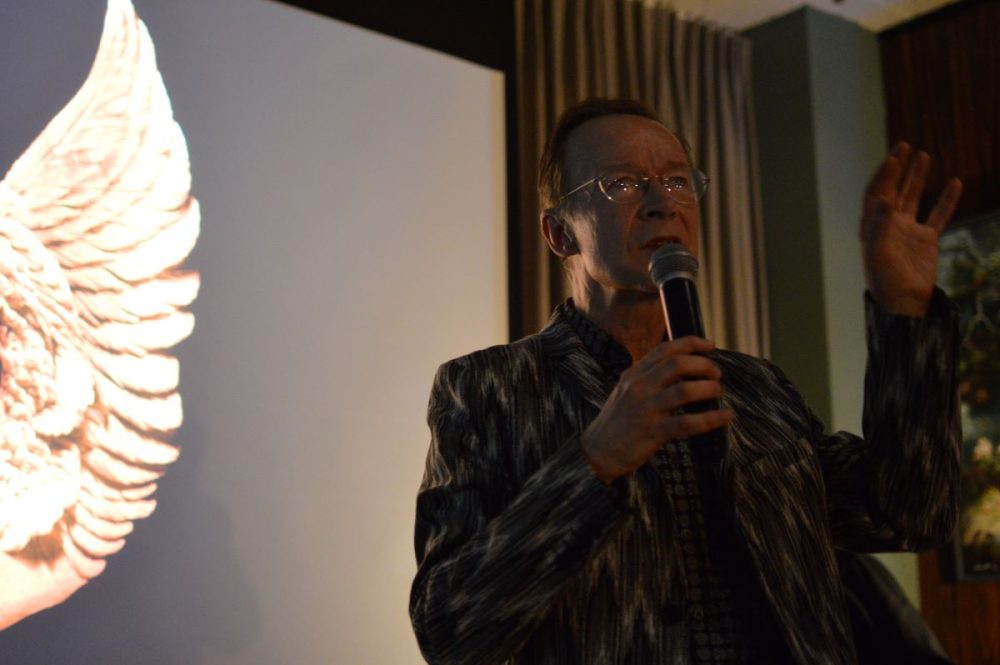
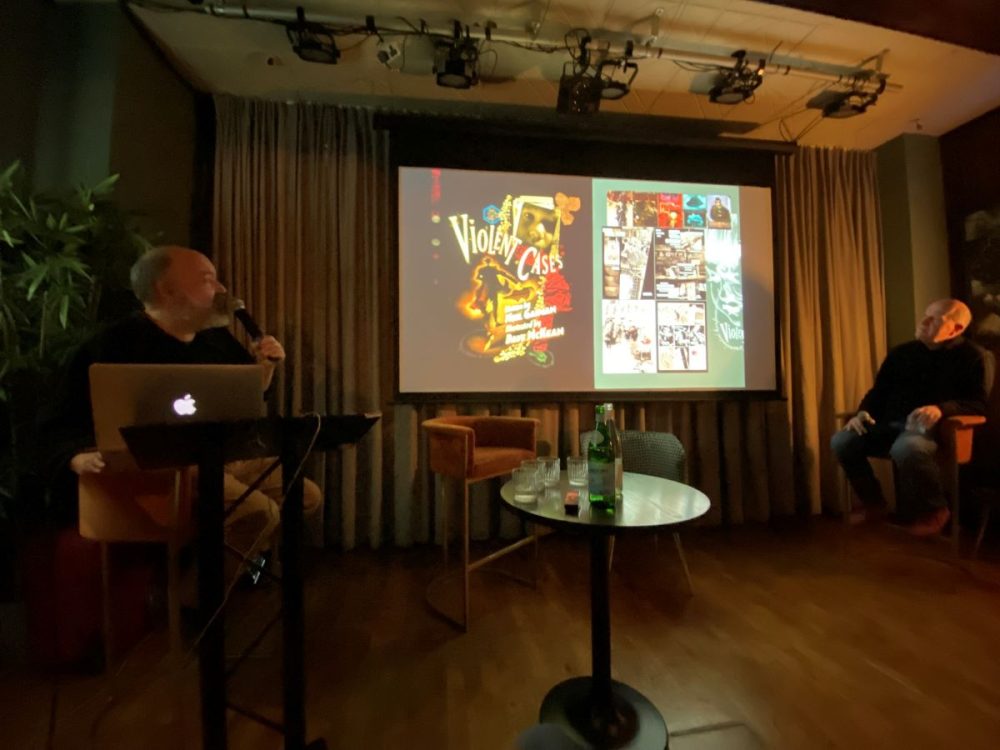
McKean kicked off the event by going over his career to date – from early comics work with Neil Gaiman (Violent Cases and Sandman) through to his more recent artistic and musical endeavours. He mentioned that he is currently working on a retrospective book on his near 40-year career as a professional artist – to be titled The Art of Dave McKean.
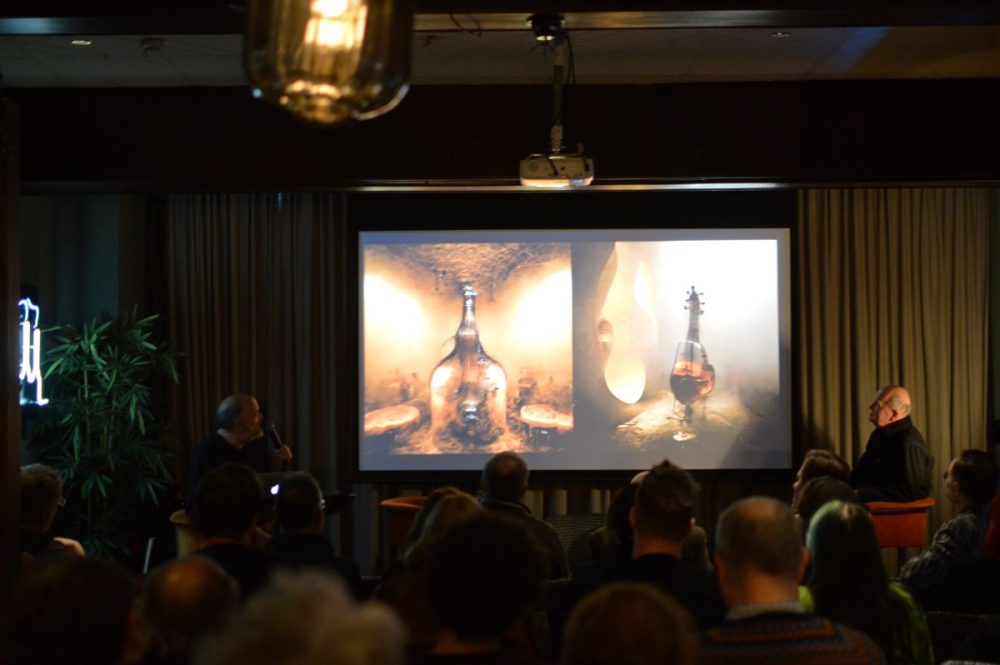
McKean then covered his first encounters with AI – first by noticing friends playing with various generators and posting the output on Facebook. He decided to find out what was going on for himself via the program NightCafe. He had been working on a project called Roadside Picnic at the time, and he fed some lines from that story into the generator and compared the results with his own work. He feels that AI has done something profound – “the rules have changed”.
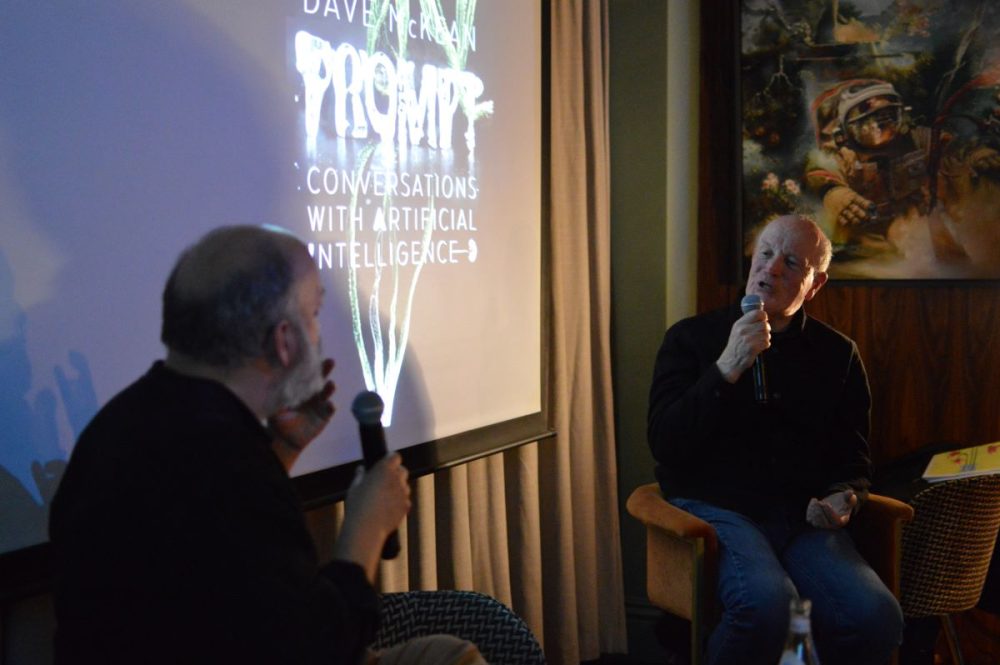
Not long after, he was invited to be a beta tester for MidJourney, another machine learning image generator, and decided to test it on another project he was working on at the time. The output was fast – what would have taken him weeks to produce samples for clients, the generator brought back in minutes – and unexpected. It left him “in a foetal position” about the implications for his own career and the wider field of art. He mentioned having a neighbour who did a postgraduate degree in Artificial Intelligence. He sought her expertise and she explained the processes underlying the system to him.
Stunned, baffled, and curious, he decided to make a book to translate what was going through his head. McKean spent 12 days in a sort of creative discourse with image generators like MidJourney, daily feeding it prompts and seeing what would emerge, while at the same time considering the possibilities, arguments, anxieties, and limitations of such systems. The end result was Prompt – his own artistic response. Prompt first released in August 2022 from Hourglass Book Publishing, and a new expanded paperback edition released this month.
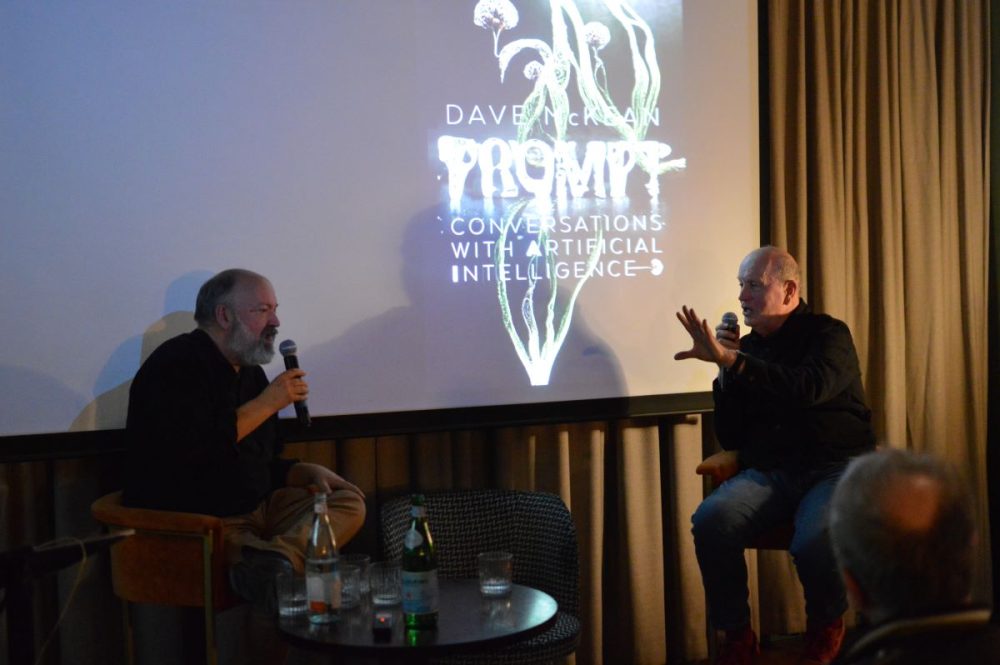
McKean says, “I’ve continued to use AI for generating stuff. It is a powerful tool – but I think my argument is that it is not just a tool. It’s much more than that. It is a sort of evolutionary step into another place…” McKean was clear, though, that he remains conflicted about the use of AI image generators.
From this point McKean engaged in a back and forth discussion with Sinclair on AI and art. McKean believed he has come to a certain conclusion about ‘Artificial Intelligence’ – for one, that it is a misnomer, since it is not intelligent, as it relies on specific inputs from a user, much like any other tool, albeit one that is much more sophisticated. He also mentioned that while AI art generators can produce interesting or good results, they have yet to surpass work produced by humans, only mimic them. He also insists that AI imagery – no matter what many may claim – is not “art” because art is, in his definition, a human endeavour and an emergent process. But image generators can potentially be useful, just like any other form of software that we have grown accustomed to.
McKean:
“MidJourney..It’s a strange name for it. I don’t know why they chose that. It should be called ‘EndResult’ because there is no journey. If you look at the MidJourney galleries it is just a literally infinite plane of end results. Completely context free.
“There is a lot of conversation now about ‘AI Art’ and I absolutely refuse to call it ‘Art’. I know that it is my definition but art for me is the journey. It’s the process of doing it. Yes there are end results along the way but it is all about process…The process is the thing. The process is where the art happens, as far as I’m concerned. It becomes about defining what art is and what creativity is.”
On describing using AI image generators like MidJourney:
“I actually felt physically sick doing it. I have a very strange feeling working with it because it is surprising – and surprises is what you want from creativity sometimes – it’s exciting. I woke up in the morning thinking ‘What the hell is it going to do next?’. All of those sorts of feelings are there but also it’s horrific and banal…There is nothing there. There is no life there, there is no spark there.”
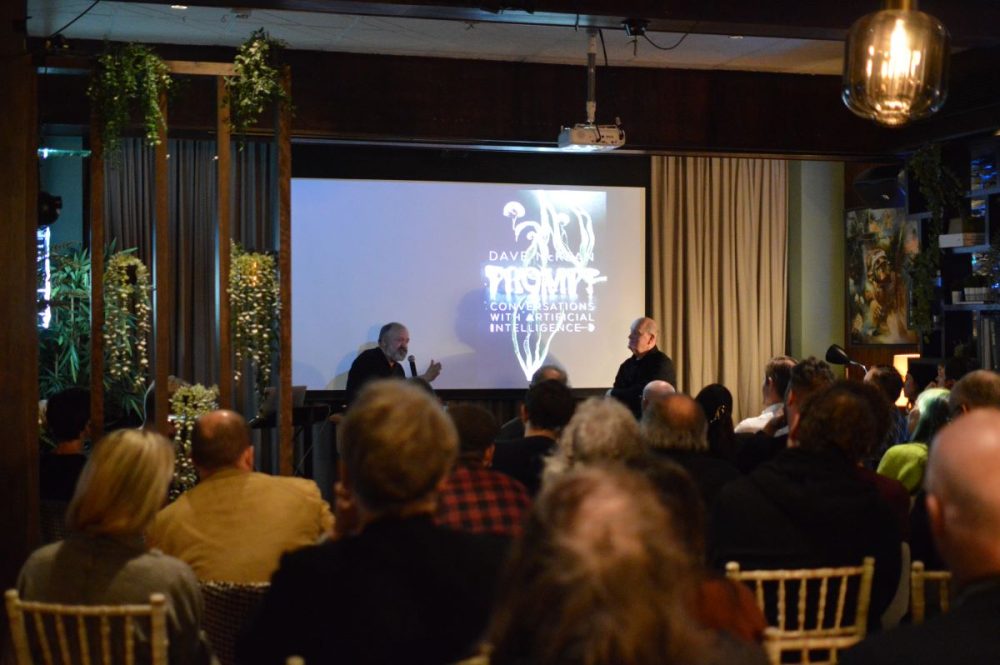
The legal and moral implications of AI images – particularly regarding the scraping of artists work without consent – he agrees are important to consider, but he is also contemplating the much wider implications of AI imagery on the art world, and how we define art and creativity.
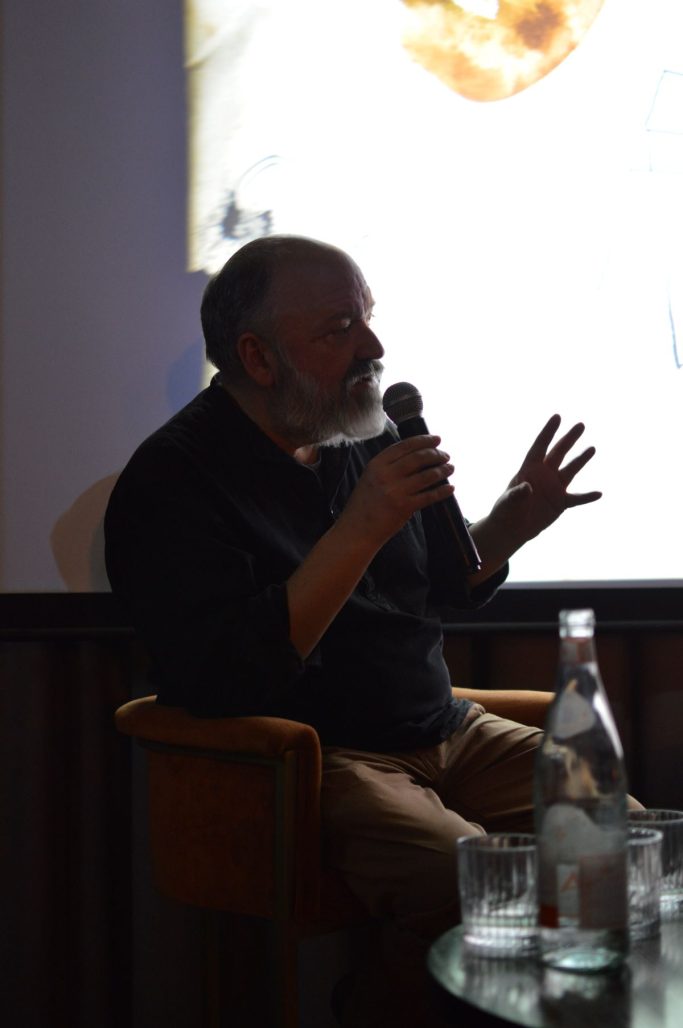
He sees AI image generators as a massive paradigm shift which is both terrifying and fascinating. It is a new technology – and new technology comes out all the time. He recalls being an early adopter of Photoshop, and the move from tapes to CDs to digital and streaming on music – but the emergence of AI in the art space is potentially a massive evolutionary shift that will cause immense upheaval and he wonders what it would mean.
McKean says he is hopeful that, while AI can produce imitations of his work, people are able to discern that they are AI generated – and so for now thinks he still has a job as an illustrator. He is conscious, however, that those in the commercial world – particularly in advertising – will likely turn to AI faster and so does foresee a future where his work as a commercial illustrator doing album covers and more could dry up.
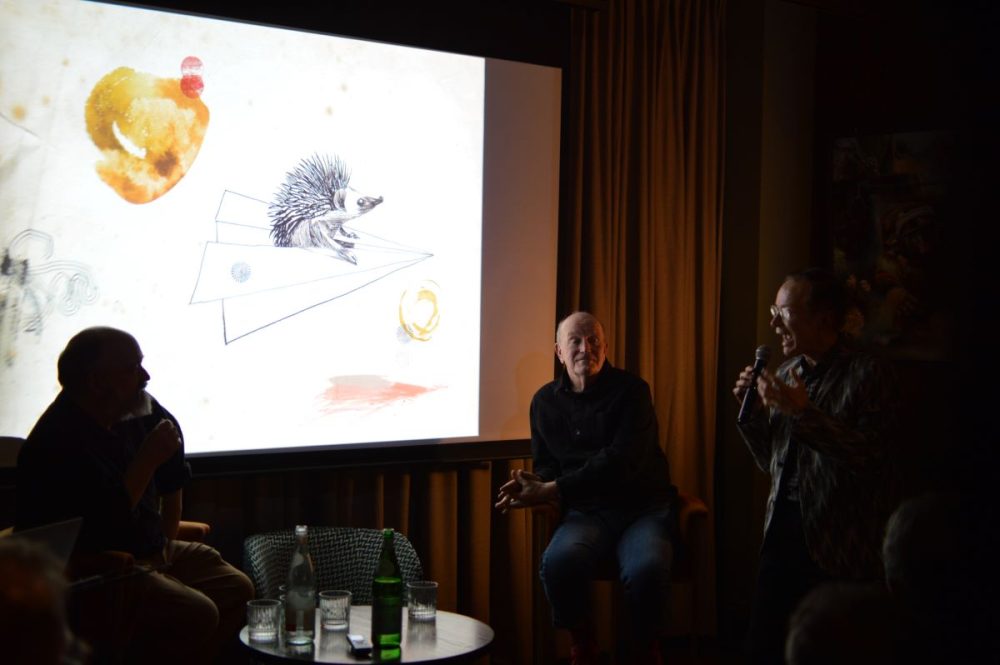
When the talk turned to questions from the audience there were many hands raised – with Comica cofounders Paul Gravett and John Harris Dunning getting involved in the discourse. Also designer Rian Hughes was in the audience and mentioned his own impressions from experimenting with AI image generators.
…and then to the post event signing!
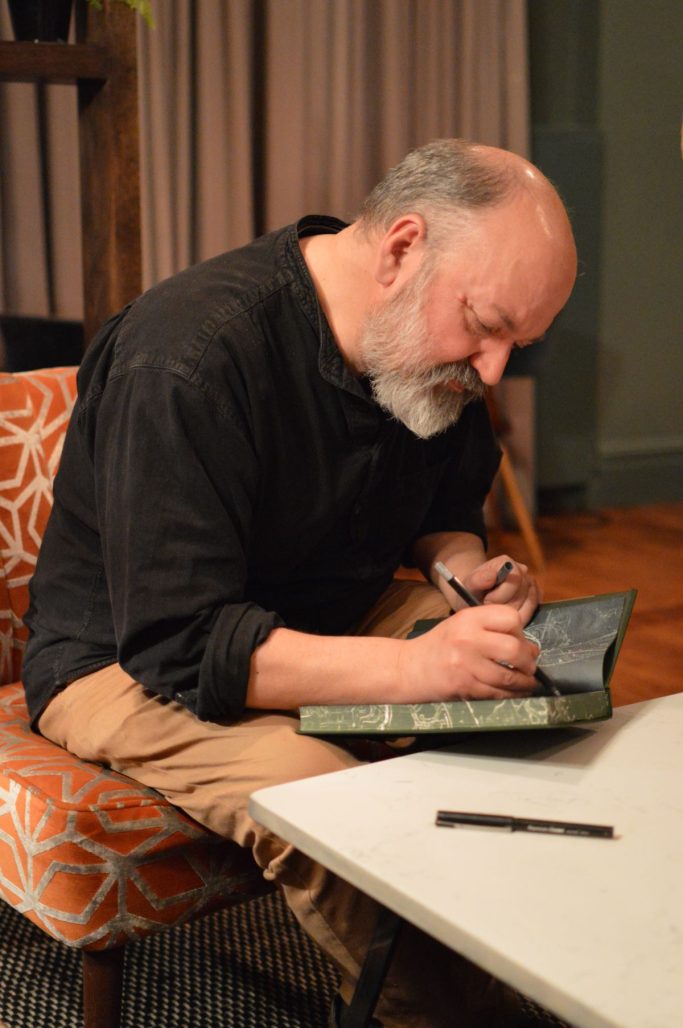
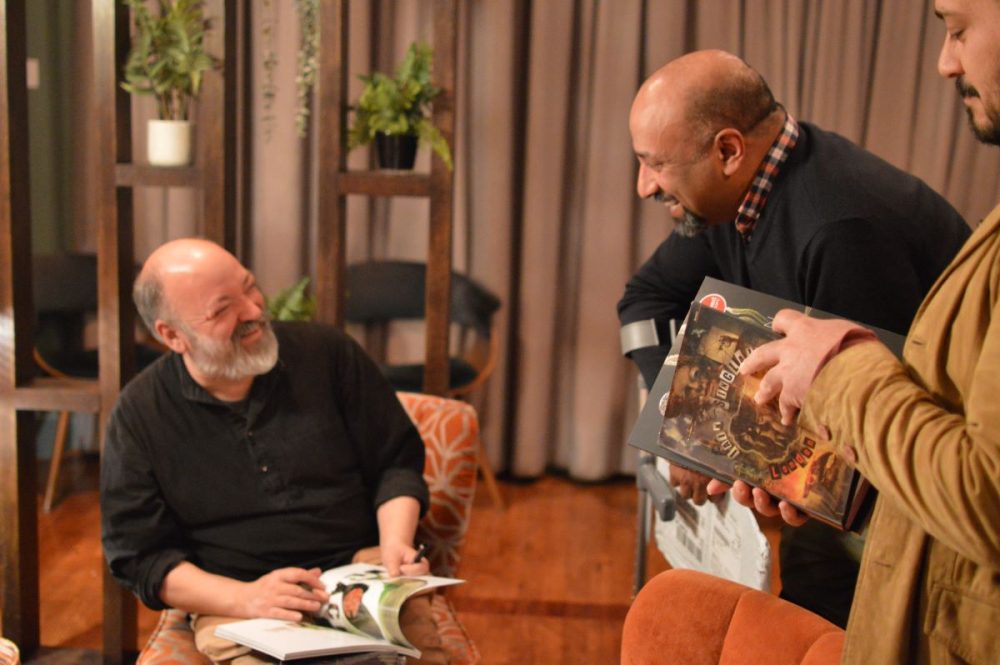
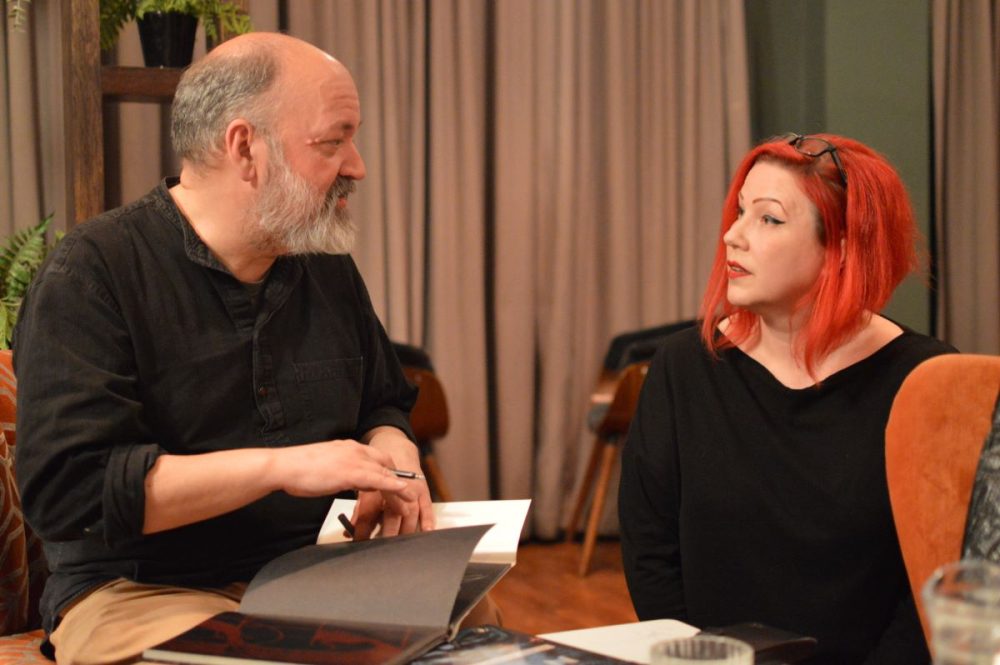
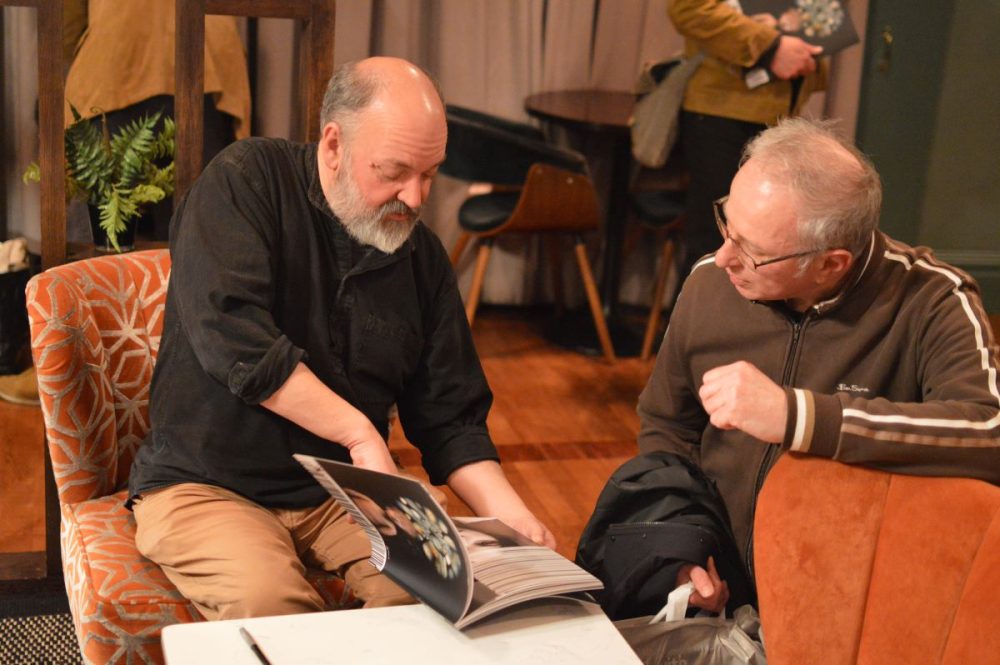


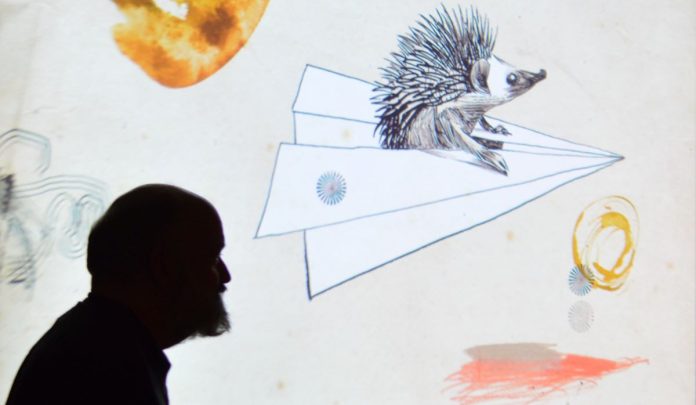
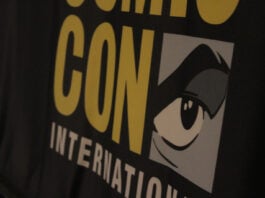
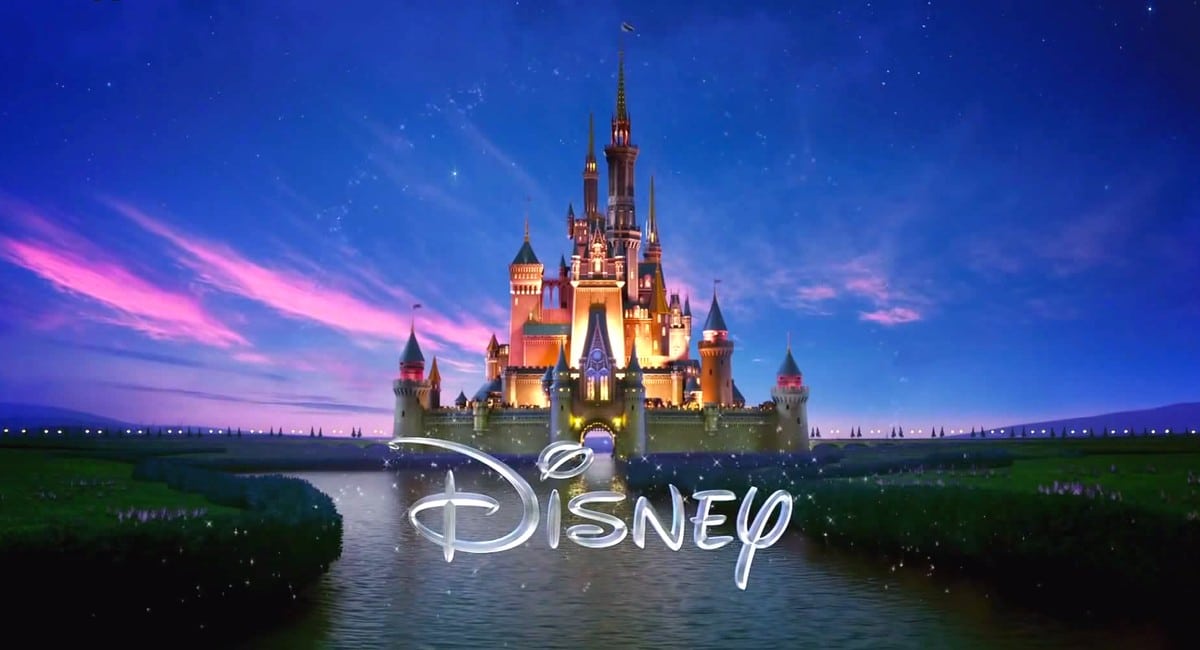

It’s so cute and beautiful
This headline appears to suggest that I think the evolutionary step of AI technology in image making is a good thing. What I actually said was, it would make the idea of art and creativity, by any definition that means anything to me, extinct.
Comments are closed.